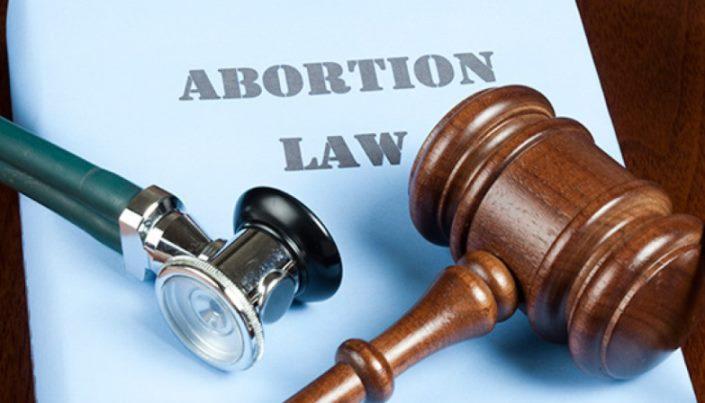
The conversation around abortion in Nigeria is slowly shifting. In Lagos State, the suspension of the Safe Termination of Pregnancy (STOP) guideline continues to highlight just how contentious and urgent the issue of safe abortion is. Across global platforms, there is growing advocacy for decriminalising abortion to reduce unsafe procedures and maternal deaths. These policy debates and calls for reform are essential, but they are only the beginning.
Decriminalising abortion or adopting progressive guidelines can remove the threat of prosecution. They can provide frameworks for hospitals to offer care without fear of sanctions. But laws on paper do not always translate to safety in practice. Without deliberate efforts to address stigma, health system readiness, community norms, and the broader socio-economic barriers that women face, legal change alone will fall short of ensuring that abortion is truly safe, accessible, and dignified.
A legal win that doesn’t automatically save lives
Globally, we have examples of countries that liberalised abortion laws but continued to see preventable deaths due to gaps in implementation. In parts of Latin America and sub-Saharan Africa, legal reforms exist alongside poorly equipped facilities, untrained providers, and communities steeped in stigma. Nigeria risks following a similar path if we assume that changing laws alone is enough.
Even within Lagos, if the STOP guideline is reinstated, though a significant step, it still depends on how well it is understood and adopted by health workers, how information is shared with communities, and whether women feel safe to seek care. Without this, policies remain documents filed in government offices, not tools that meaningfully save lives.
Health systems: The backbone that’s often missing
For abortion to be safe, it requires more than legal backing. It needs a health system that is adequately resourced and prepared to offer timely, nonjudgmental care. In many Nigerian facilities, shortages of essential equipment, drugs, or trained personnel are common. Rural areas are particularly underserved, forcing women to travel long distances, an expense many cannot afford.
Even where services exist, fear of stigma from healthcare providers persists. Stories abound of women turned away, scolded, or subjected to invasive questioning when seeking post-abortion care. Provider bias, often fuelled by personal beliefs or lack of proper training, can undermine the very essence of safe abortion access, regardless of what the law permits.
Perhaps the most insidious obstacle is not written into any law but embedded deeply in society’s mindset. Abortion stigma frames women as immoral or irresponsible, turning a personal health decision into a community spectacle. This silencing culture forces women into secrecy, driving them to unlicensed providers or self-managed attempts without reliable information.
Many women delay seeking help even when complications arise, fearing judgement from both families and health workers. By the time they arrive at clinics, they may be in critical condition, complicating care and increasing the risk of lasting harm or death. As one community health advocate bluntly put it, “People act like abortion doesn’t happen. But it happens everywhere. The difference is whether it’s safe or deadly.”
Economic and social inequalities at play
Additionally, many women lack comprehensive, accurate information about their reproductive options. In communities where sexuality is taboo, even discussing contraception is difficult, let alone understanding safe methods of terminating a pregnancy. Without targeted efforts to spread awareness and combat misinformation, legal change remains out of reach for those who need it most.
So, what must change?
True access requires a multi-layered approach:
-Strengthen the health system: This means investing in equipment, commodities, and training so that facilities can provide high-quality, respectful care. Health workers must be trained not only technically but also on ethical, patient-centred approaches.
-Combat stigma: Community dialogues, faith leader engagement, and media narratives must shift from shame and secrecy to empathy and fact-based discussion. Under the PAMOJA project, WEWIN has worked with journalists and community influencers to begin reframing these conversations, proving that changing narratives is possible.
-Prioritise information: Women and girls must have access to clear, accurate, nonjudgmental information about all their reproductive health options. This includes education on contraception, pregnancy, and where to safely seek care.
-Support holistic laws and policies: Decriminalisation is critical, but policies should also mandate quality standards, confidentiality protections, and proactive measures to reach under-served populations.
Conclusion
Decriminalising abortion in Nigeria, or reinstating guidelines like STOP in Lagos, is undeniably important. It reduces fear among providers, offers a pathway for formal services, and signals political willingness to tackle unsafe abortion. But without dismantling stigma, strengthening the health system, addressing economic inequalities, and centering women’s lived realities, these changes will not fulfil their promise.
Safe abortion is not achieved solely by changing the letter of the law. It is realised when a woman, regardless of her age, income, or marital status, can make informed decisions about her body and access compassionate care without fear.
If Nigeria is to truly protect women’s health, the work must move beyond courtrooms and government memos into clinics, classrooms, homes, and hearts. Only then will legal victories translate into lived safety and dignity.
SOURCE: Business Day Nigeria, by Women Empowering Women Initiative (WEWIN), 15 July 2025.



